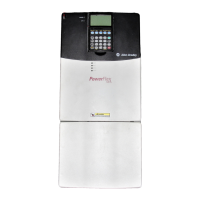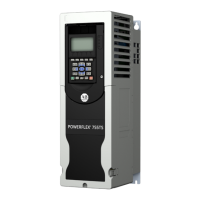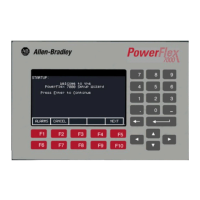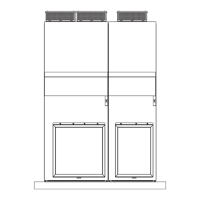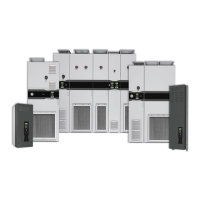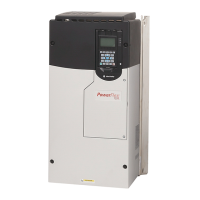Analog Inputs 2-9
Alarm Queue (PowerFlex 700 Only)
A queue of 8 parameters exists that capture the drive alarms as they occur. A
sequential record of the alarm occurrences allows the user to view the
history of the eight most recent events.
Analog Inputs Possible Uses of Analog Inputs
The analog inputs provide data that can be used for the following purposes:
• Provide a value to [Speed Ref A] or [Speed Ref B].
• Provide a trim signal to [Speed Ref A] or [Speed Ref B].
• Provide a reference when the terminal block has assumed manual control
of the reference
• Provide the reference and feedback for the PI loop. See Process PI
Loop on page 2-137.
• Provide an external and adjustable value for the current limit and DC
braking level
• Enter and exit sleep mode.
• Provide a value to [Torque Ref A] or [Torque Ref B].
Analog Input Configuration
[Anlg In Config]
[Current Lmt Sel] allows an analog input to control the set point while [DC
Brk Levl Sel] allows an analog input to define the DC hold level used when
Ramp-to-Stop, Ramp-to-Hold, or Brake-to-Stop is active.
To provide local adjustment of a master command signal or to provide
improved resolution the input to analog channel 1 or 2 can be defined as a
trim input. Setting [Trim In Select] allows the selected channel to modify
the commanded frequency by ±10%. The speed command will be reduced
by 10% when the input level is at [Anlg In x Lo] with it linearly increasing
to 10% above command at [Anlg In xHi].
Feedback can be used to control an operation using the “Process PI”
(proportional-integral) feature of the control. In this case one signal, defined
using [PI Reference Sel], provides a reference command and a second,
defined using [PI Feedback Sel], provides a feedback signal for frequency
compensation. Please refer to the Process PI Loop
on page 2-137 for details
on this mode of operation.
UTILITY
Alarms
262
263
264
265
266
267
268
269
[Alarm 1 Code]
[Alarm 2 Code]
[Alarm 3 Code]
[Alarm 4 Code]
[Alarm 5 Code]
[Alarm 6 Code]
[Alarm 7 Code]
[Alarm 8 Code]
A code that represents a drive alarm. The
codes will appear in the order they occur
(first 4 alarms in – first 4 out alarm
queue). A time stamp is not available with
alarms.
Default:
Min/Max:
Display:
Read Only
0/256
1
261
Vector
FV
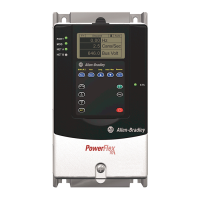
